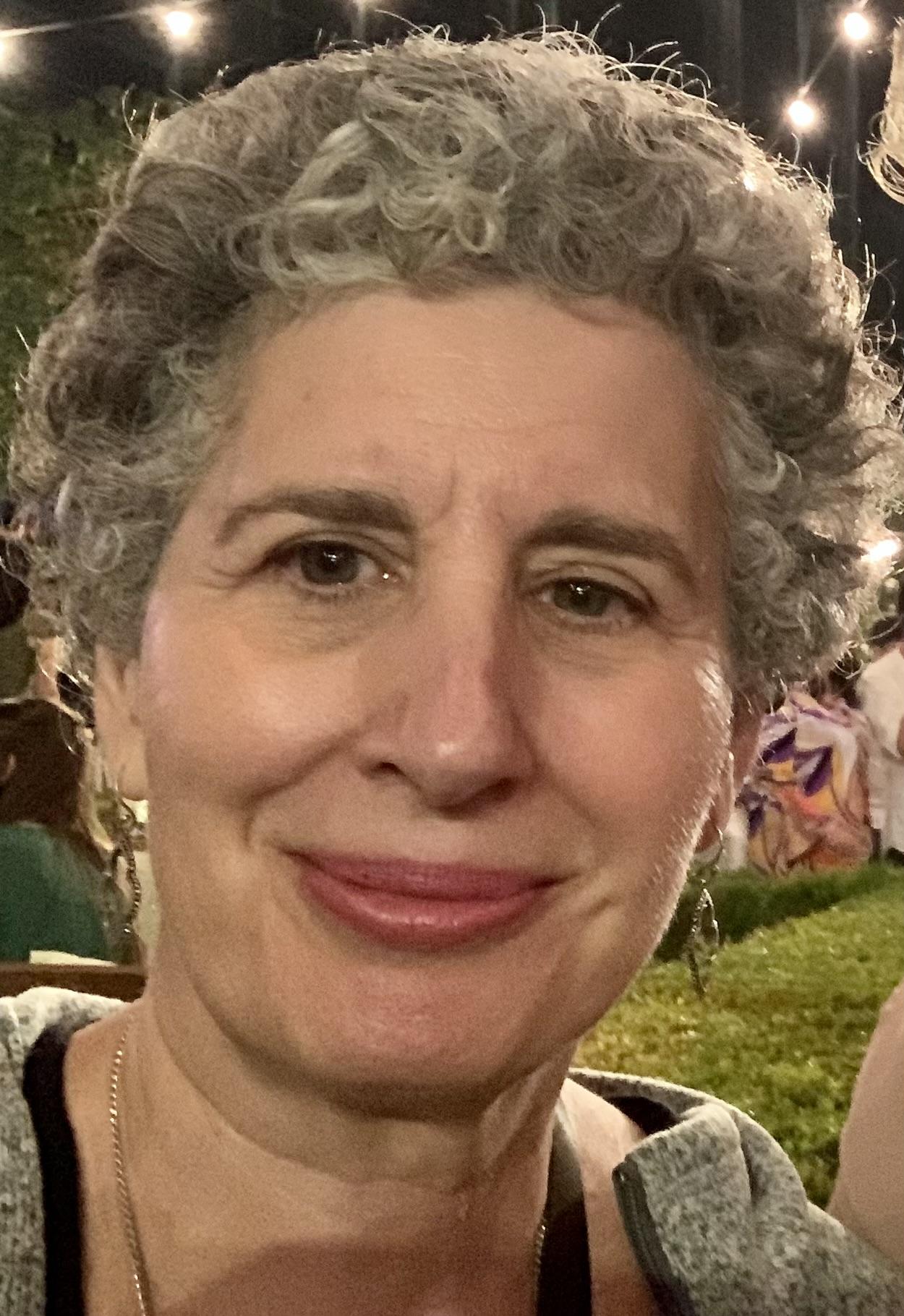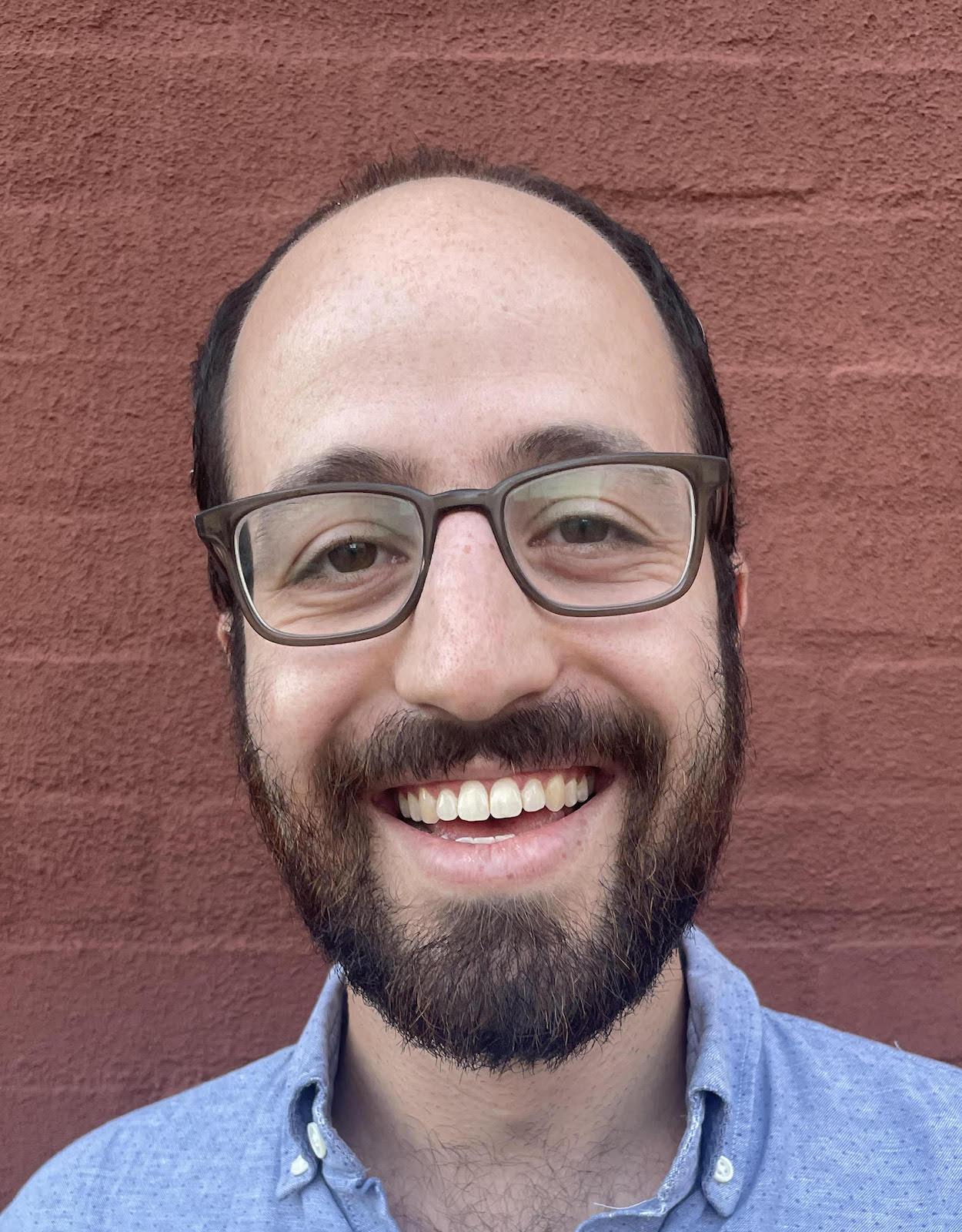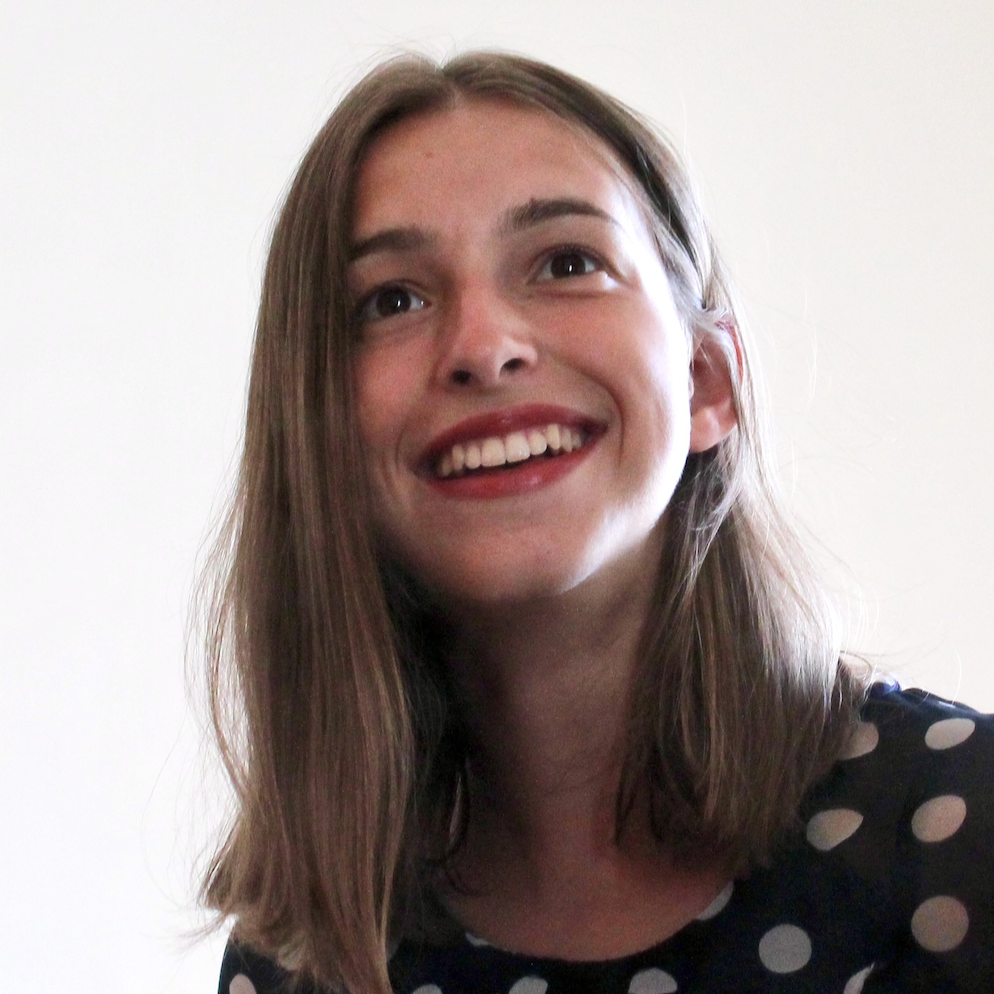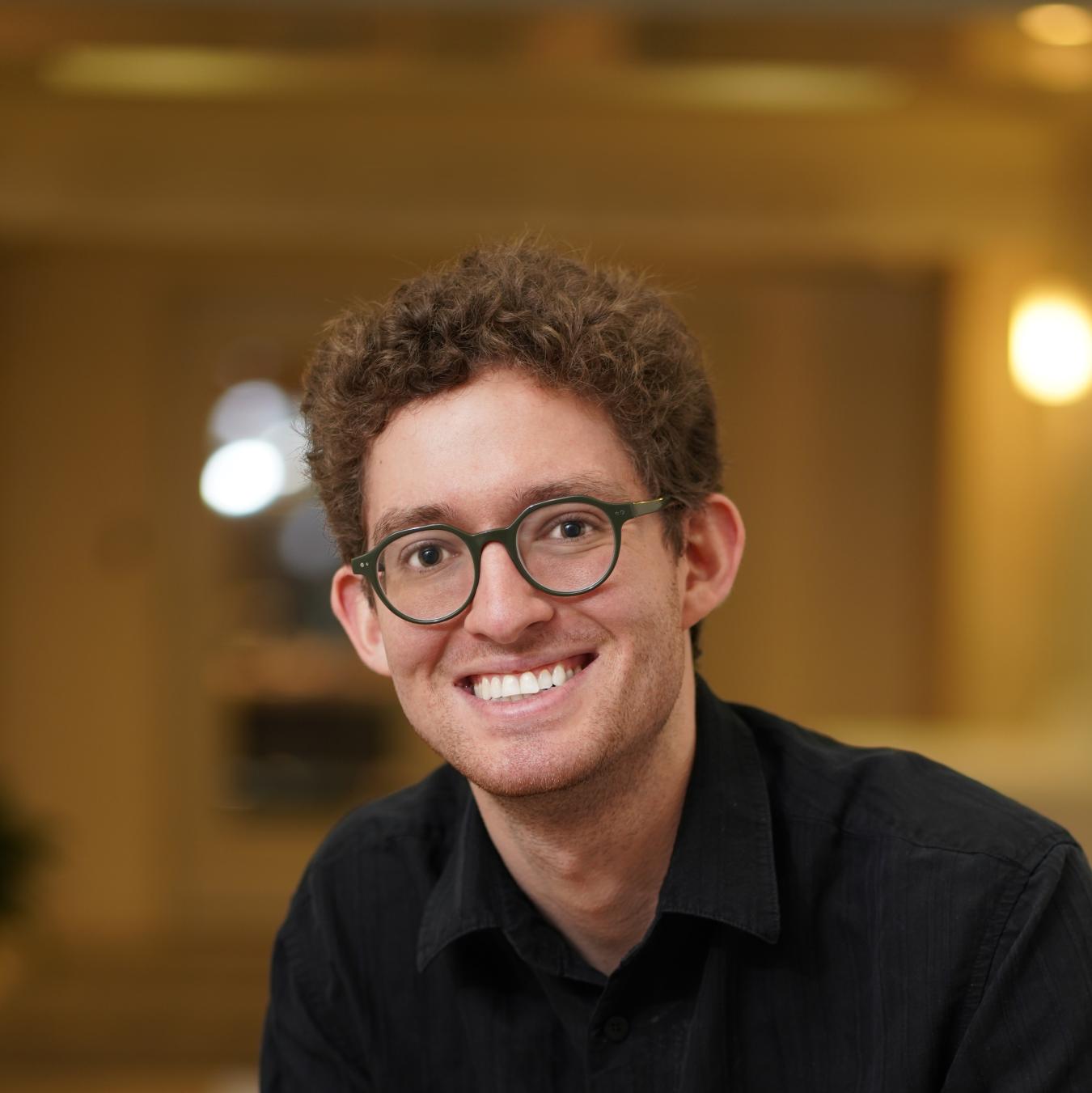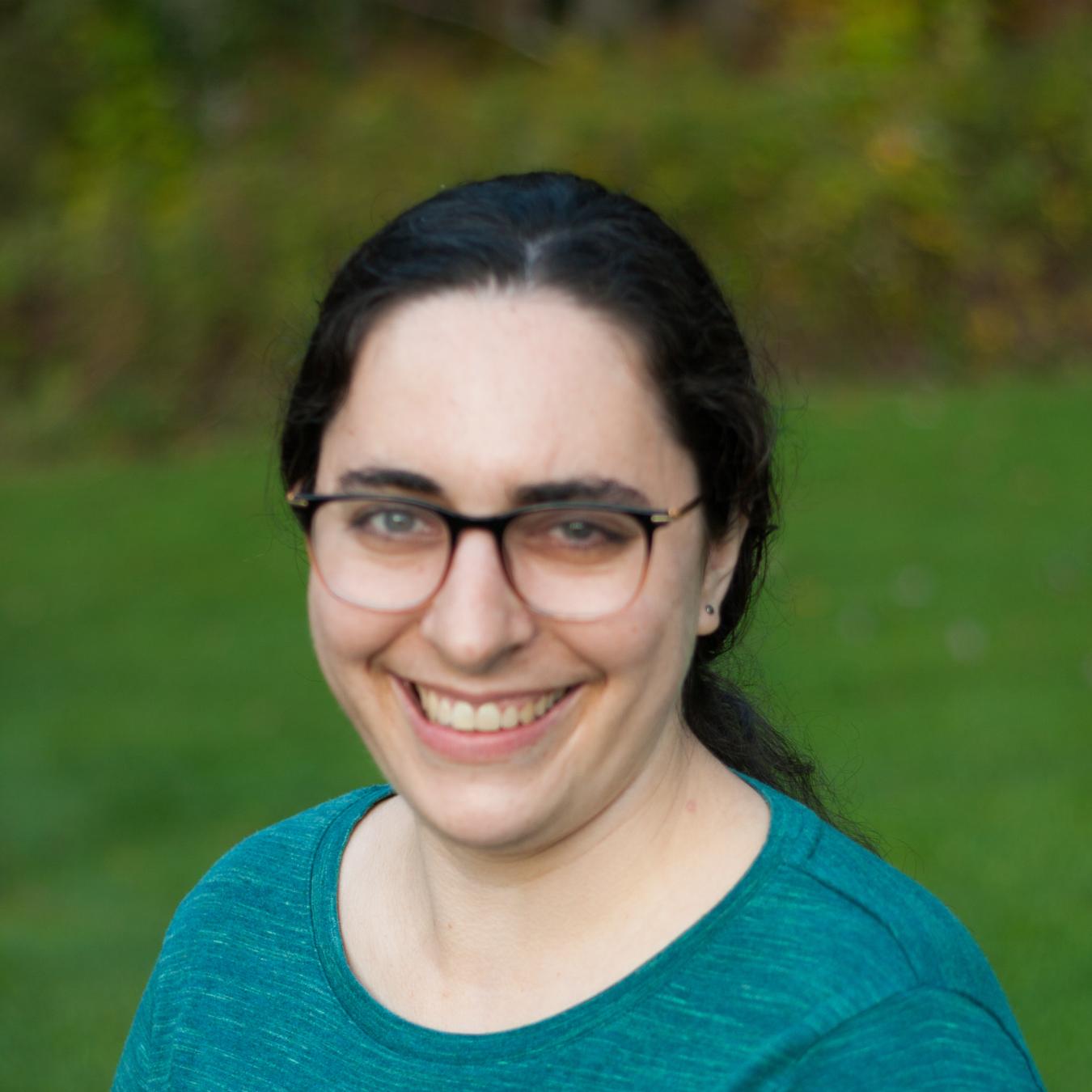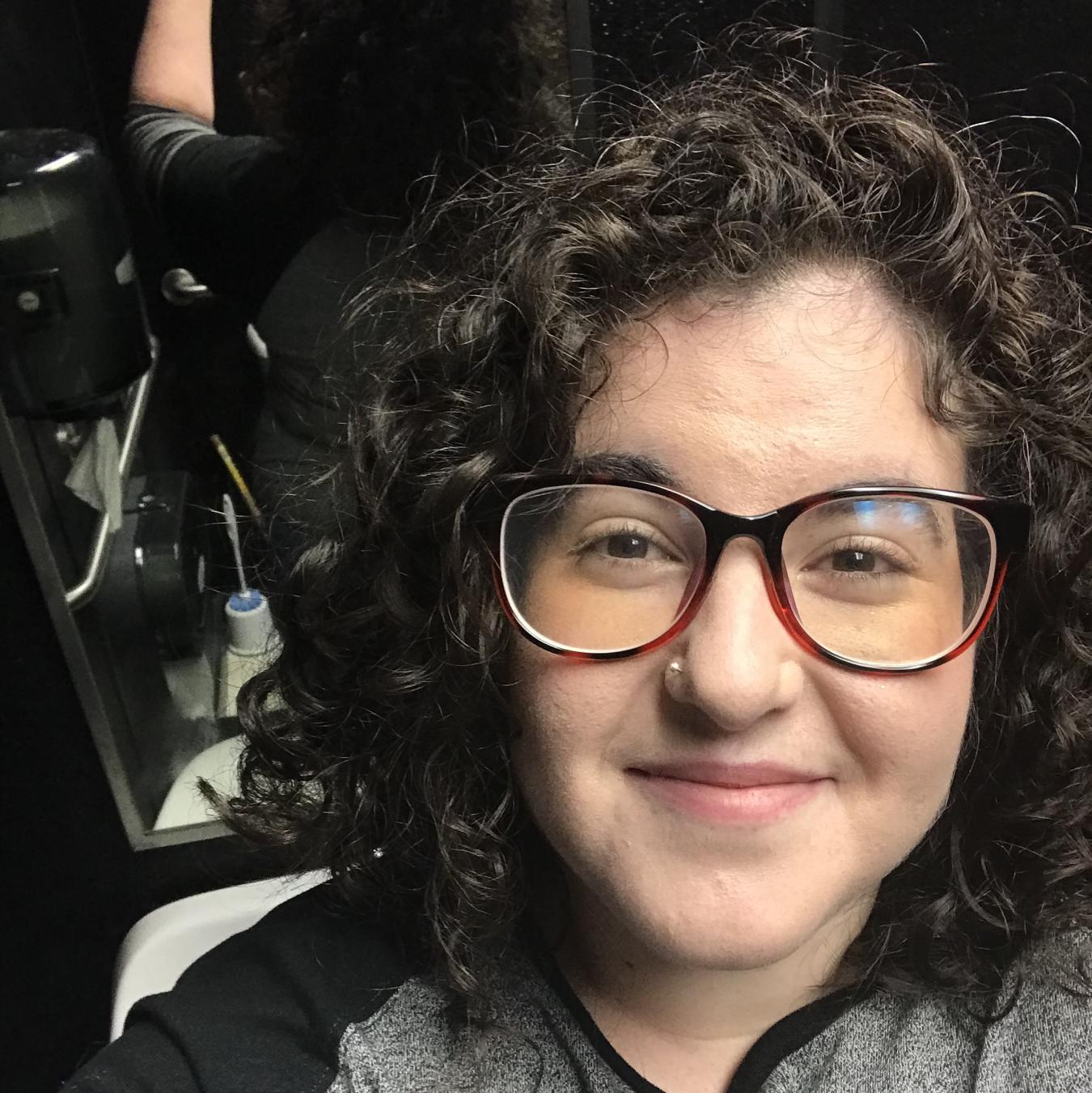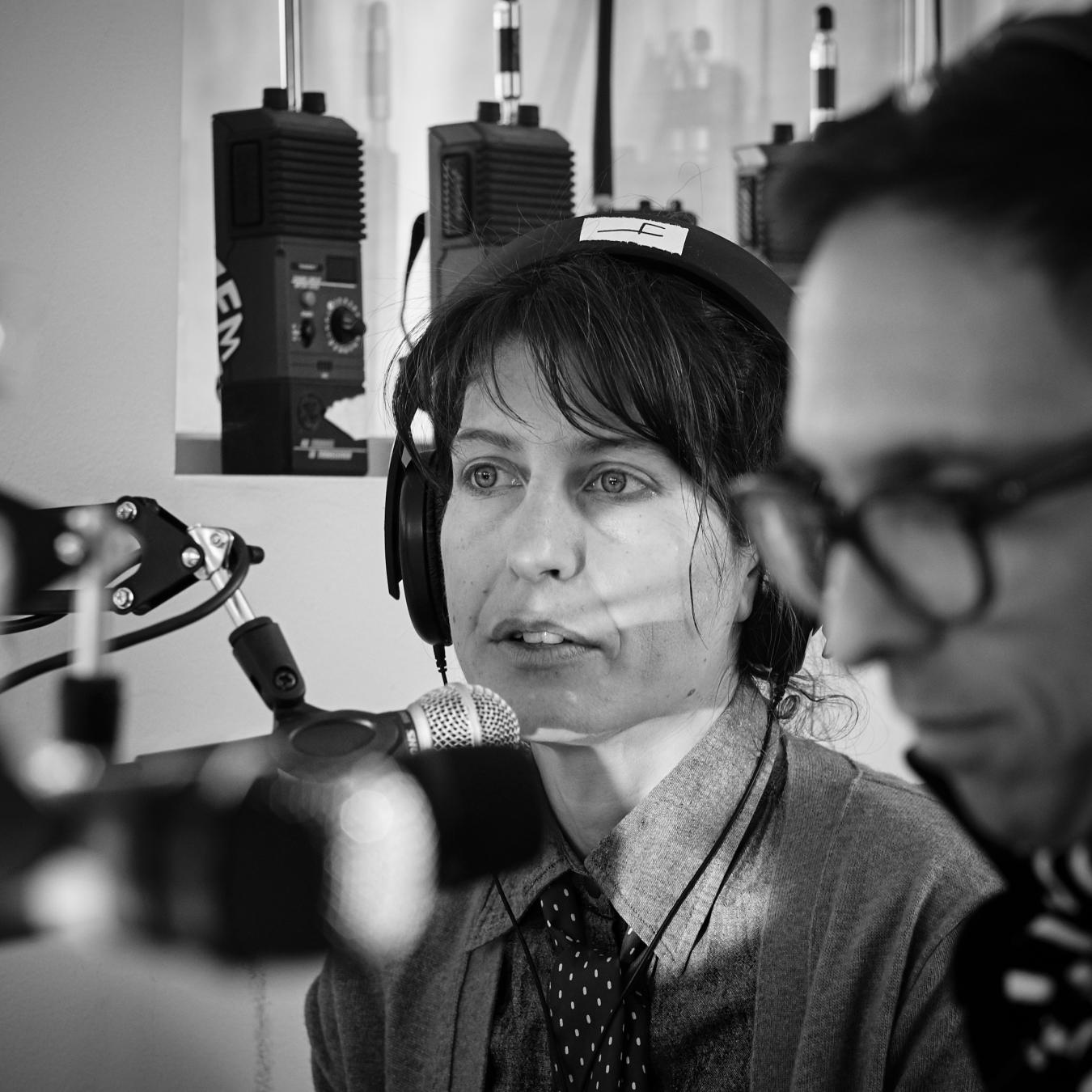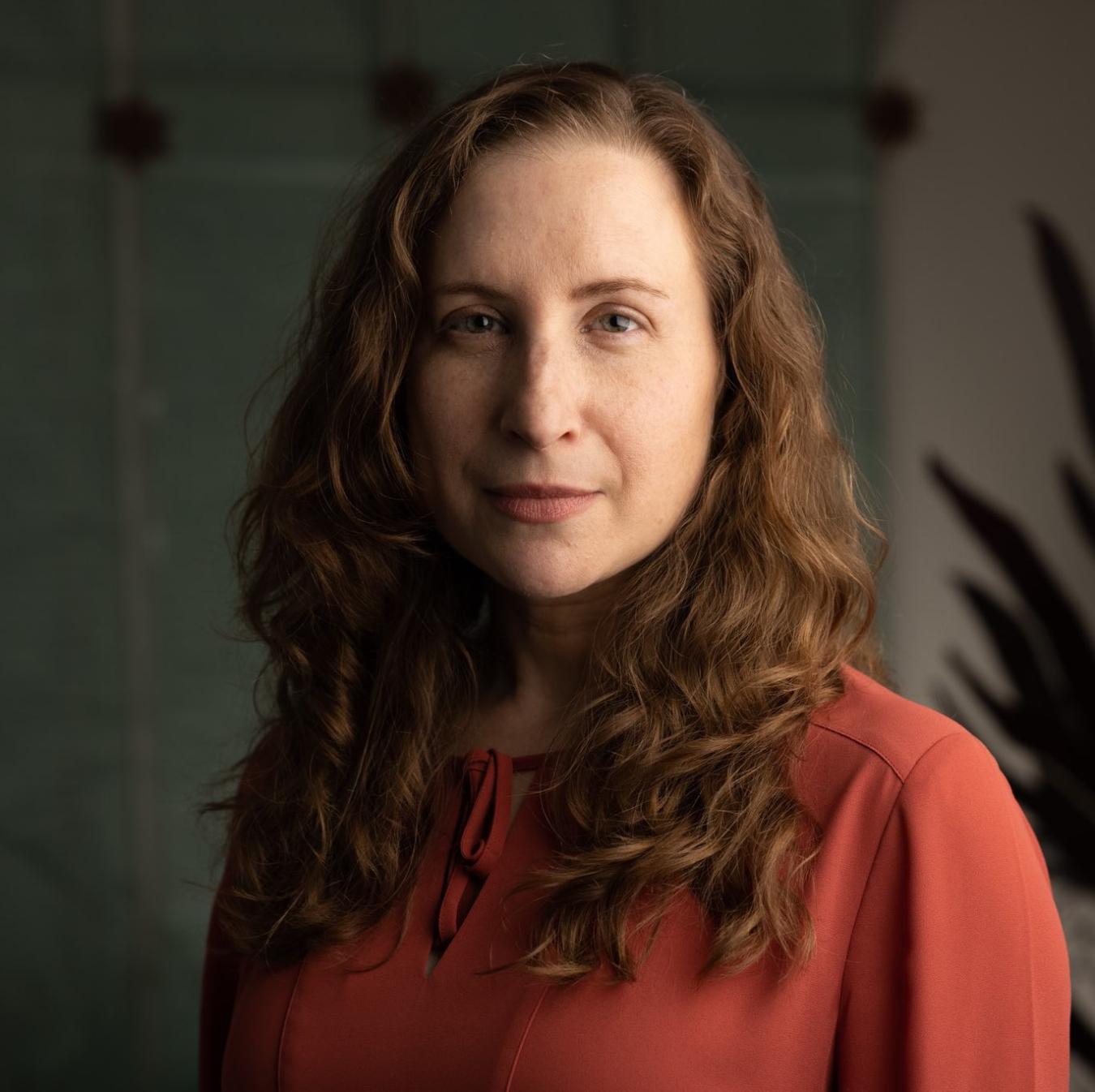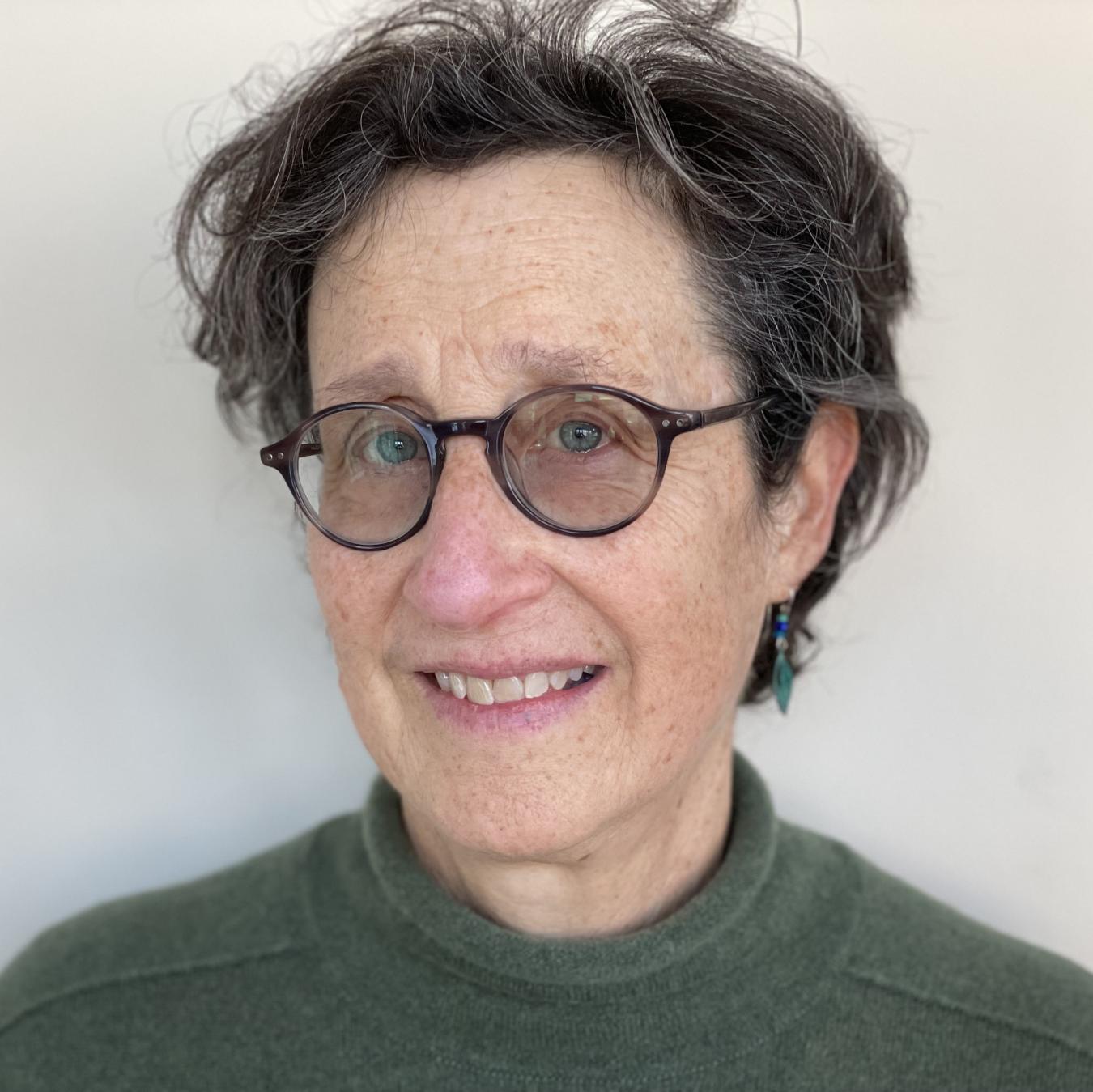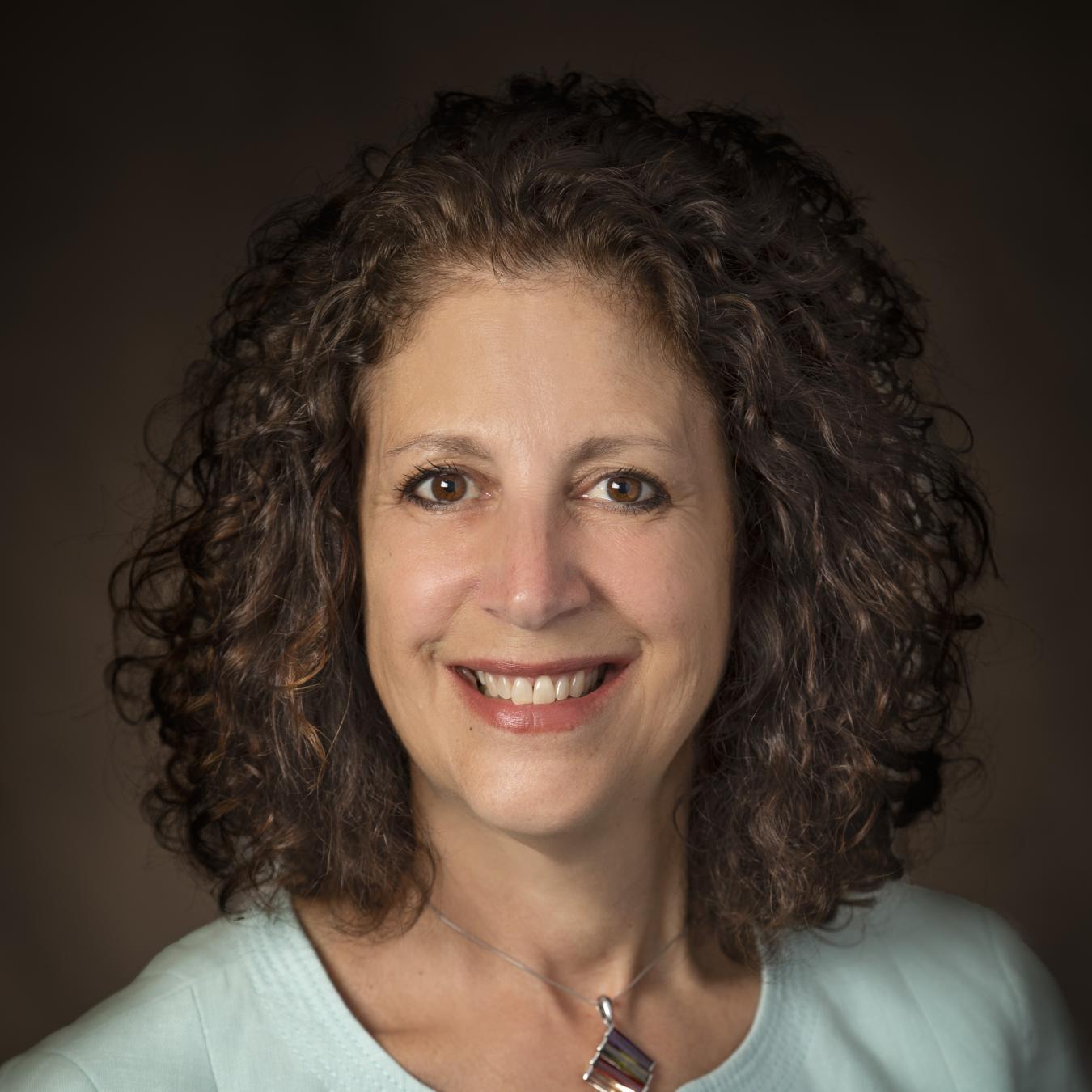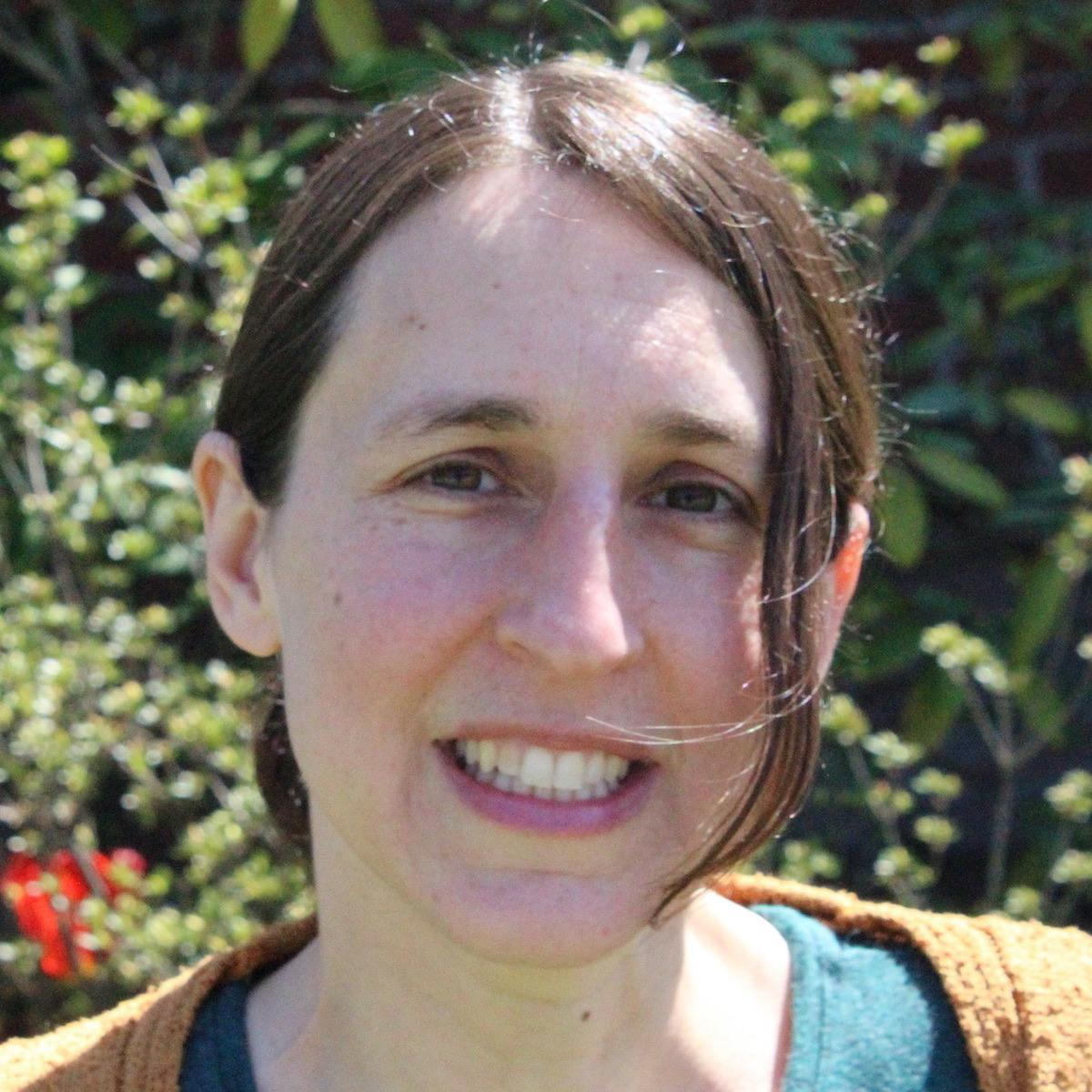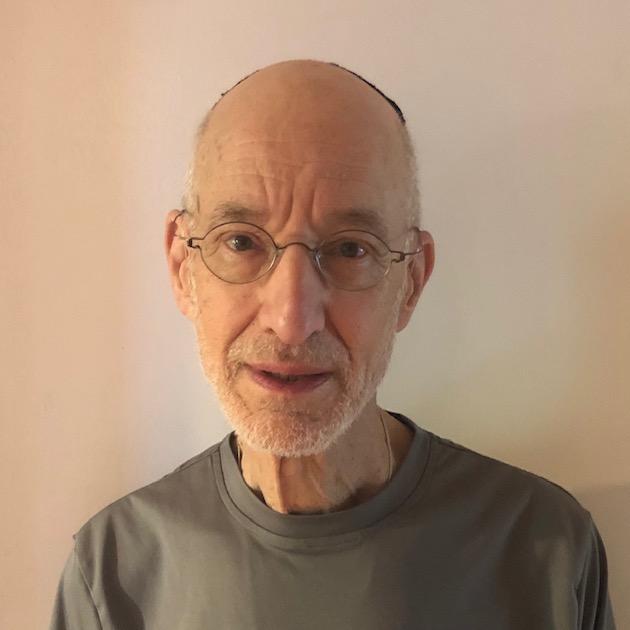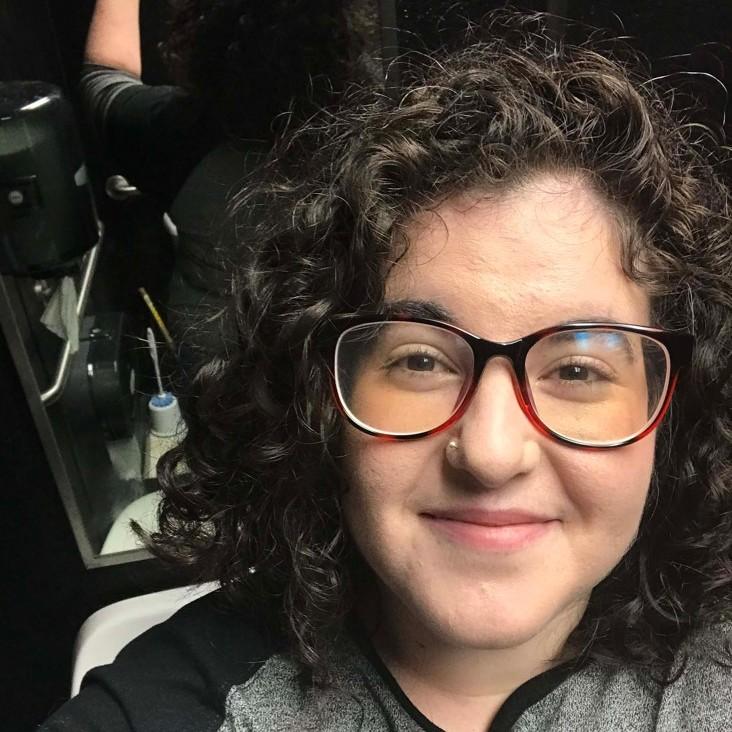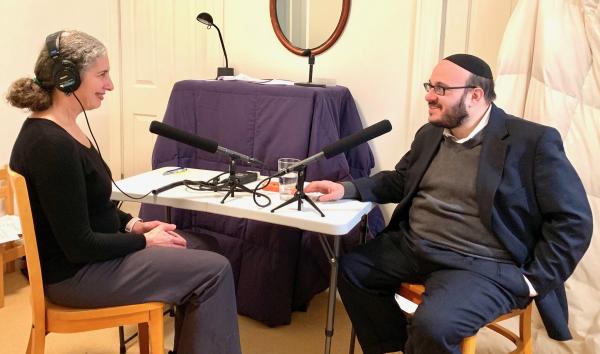

Project History
Project Beginnings
Meanings of October 27th co-creators Aliza Becker and Noah Schoen began exploring an oral history project about the October 27th synagogue shooting in Pittsburgh in late 2018. A native Chicagoan, Aliza became curious about Pittsburghers’ experiences of the aftermath of the shooting beyond the narratives reported by the media. She approached Noah, who was born and raised in Pittsburgh, about the idea of conducting an oral history project about the shooting together. He welcomed the opportunity to offer healing to his community through deep listening and agreed to join her.
Aliza and Noah agreed that oral history’s ethical approach to interviewing was the appropriate methodology to embark on such a project. Together, they began imagining a community-centered oral history project that would collect the experiences of diverse Pittsburghers, build an archive of interviews, and invite communal engagement with their stories
Noah Schoen in the car with Aliza Becker after picking her up from the airport on their first project trip to Pittsburgh, March 2019.
Early Progress
In January and February of 2019, Aliza and Noah worked closely with their oral history mentor Suzanne Snider to develop a project plan that centered community needs. They began working closely with Eric Lidji, director of Pittsburgh’s Rauh Jewish History Program & Archives at the Senator John Heinz History Center, and agreed to donate the full collection of oral histories to the Rauh upon the project’s completion, making it the permanent home of Meanings of October 27th.
In the spring of 2019 they met with more than 50 Pittsburghers on a listening tour to learn more about individuals’ experiences of October 27th, its ongoing impact on their lives, and the general state of the community. The listening tour was crucial in framing the purpose and scope of the project interviews. Following it, they decided to begin each interview with a narrator’s [interviewee’s] life history to allow people to define themselves outside of the trauma of the synagogue shooting. They also decided to conduct a significant number of interviews with non-Jews, many of whom had demonstrated extraordinary allyship to the Jewish community following the shooting and had also been deeply impacted.
Oral History’s Unique Methodology
Oral history’s approach to the interview strives to share power with narrators with regard to the content of the interview and its public release. While Aliza and Noah brought a set of guiding questions to each interview, narrators were invited to rephrase questions for themselves and respond beyond the questions that were asked. Narrators also retained the ability to withdraw their interview from the collection before its donation to the archive, if they so chose. This unique power-sharing arrangement also allowed each narrator the opportunity to review their interview before it became public.
Conducting Interviews
From August 2019 to January 2022, Aliza and Noah interviewed 105 Pittsburghers about their life histories and reflections on the synagogue shooting. In selecting narrators, they sought to give voice to the diversity present in the Jewish and non-Jewish communities of Greater Pittsburgh. Narrators were identified through word of mouth suggestions, connections from the project’s local advisory council, and a demographic review of the city. Interviews were conducted by Aliza or Noah. Most took place in a homemade sound studio on the third floor of Noah’s parents’ home in Pittsburgh.
Content of the Interviews
Each interview began with a life history where the narrator reflected on who they are, where they come from, and what they care about. Next, the interview made space for the narrator’s experiences of and reflections on October 27th. This approach centered each individual’s life and provided context for their reflections on the synagogue shooting.
There is a saying that in oral history, the truth is a multi-vocal art. This oral history collection draws out the tapestry of multiple truths emerging from Pittsburghers’ experiences of October 27th, 2018 and its aftermath. The interviews contain heartfelt reflections on many topics, including antisemitism, racism, healing, resilience, allyship, community safety, and the past, present, and future of the city of Pittsburgh. Narrators reflect on the fullness of their lives and discuss the challenges of the time following the shooting alongside moments of joy, resolve, and connection.
Bringing Narrators Together
Following their interviews, narrators were invited to further engage with the project in a series of three narrator gatherings. These facilitated gatherings brought narrators together to connect with each other, listen back to audio clips from interviews, and discuss themes that emerged.
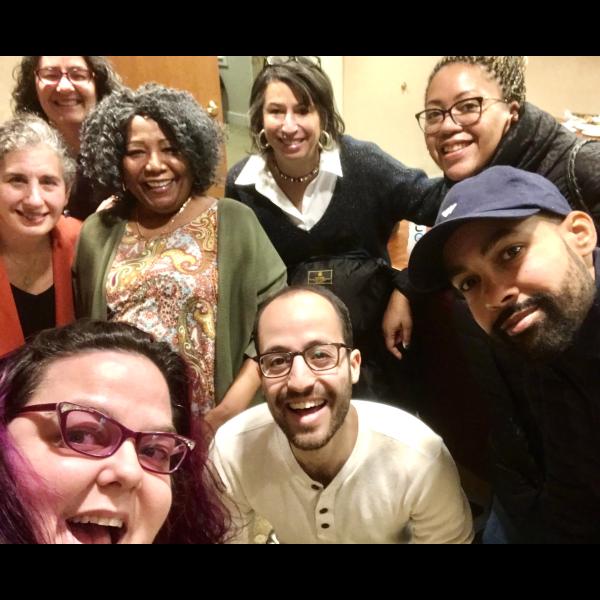
Several narrators pose for a photo with Noah Schoen and Aliza Becker following the third Meanings of October 27th narrator gathering, February 2020.
Uses of the Interviews
From 2020-2021, Aliza and Noah conducted three programs in New York and Pittsburgh using interview excerpts to stimulate discussion on issues ranging from antisemitism and racism to community safety and alliances between Jews and non-Jews. A June 2021 online program sponsored by the New York-based Museum of Jewish Heritage brought together more than 300 participants from around the world.
Today, Aliza and Noah are creating new ways for the public to access the Meanings collection. In his role as the Community Outreach Associate at the Holocaust Center of Pittsburgh, Noah is developing educational modules about antisemitism and other topics using audio clips from the interviews. Aliza is creating a podcast that allows listeners to take a curated deeper dive into the archive.
Noah and Aliza envision multiple interpreters of the archive will explore its contents and share their insights back with the public for many years to come. The Meanings archive has the potential to be integrated into listening projects, museum exhibits, theatrical performances, educational curricula, and more.
Project Leads
Project Team
Advisory Council
Acknowledgements
The 105 oral history interviews that make up this collection are the result of a collaboration between hundreds of people. We attempt to name all of them here, knowing we are surely missing many.
Thank you to Anita Simansky for coming up with the original idea to conduct an oral history around 10/27 and supporting us in the launch of this project. Your thought partnership in the beginning stages of Meanings was a vital contribution to its early energy and momentum.
Thank you to the Hannah Arendt Center for Politics and Humanities at Bard College for holding down the crucial back end of fiscal sponsorship. We appreciate HAC Founder and Academic Director Roger Berkowitz for welcoming our project into the Center, and a special thanks to HAC Executive Director Christine Gonzalez Stanton for carefully managing our fiscal and administrative needs and for her personal support for the project.
Thank you to the many donors from Pittsburgh and throughout the country who provided the resources for us to conduct this oral history project. Your generosity enabled us to design and implement this project to the high standard and level of accessibility that it merits. It is thanks to you that we were able to build an archive that will stand for generations to come.
Gratitude to everyone who housed us and fed us during our time in Pittsburgh. Aliza felt welcomed like family into the homes of Marlene Haus, Mary Korytkowski and Bruce Herschlag, Merris and Yram Groff, Nancy Bernstein and Rocky Schoen, and Lynn Sanborne. We also had a fantastic “welcome to Pittsburgh” Shabbat meal at Nina Butler’s home. At various points, we were hosted in other parts of the country by Alvin and Arlene Becker, David Becker, and Rinne Groff.
We stand on the shoulders of so many oral historians, but a few deserve special mention. Suzanne Snider trained both of us in oral history, and she is an absolute wizard of an instructor. With her guidance we widened the lens of our interviews—which were initially to focus on the synagogue shooting only—to begin with life histories. This early redirect fundamentally shaped Meanings for the better, orienting us in service of community need rather than journalistic inquiry. Our consultations with Suzanne throughout the project resolved countless issues both logistical and theoretical. Benji de la Piedra was spiritual counsel to Noah throughout this project, often lending a listening ear as friend and oral history mentor. His choice metaphor about the challenge of bringing an archive to completion particularly helped Noah move through the weeds of transcription review and other mundane details. Much appreciation to Doug Boyd for creating and shepherding OHMS, the Oral History Metadata Synthesizer, which we have used here to integrate the project's interviews and transcripts and make them available online. Thanks to Doug's vision for more accessibility in the oral history field, Meanings will doubtlessly reach many more people than it would have otherwise. The team at Groundswell: Oral History for Social Change hosted several vital workshops we attended in early 2019 that helped shape our vision in its earliest stages.
Thank you to everyone who sat with us during our listening project in the spring of 2019. You provided invaluable insights that shaped the project design of Meanings and ensured our project was responsive to the needs of the Pittsburgh community. We acknowledge those who participated in the listening project but who for limitations of budget and time we were not able to interview: Rabbi Seth Adelson, Rabbi Yisroel Altein, David Brent, Father Tom Burke, Barbara Burstin, Rabbi Chuck Diamond, Rabbi Jamie Gibson, Rabbi Sharyn Henry, David Knoll, Dade Lemanski, Maja Lynn, Cantor Julie Newman, Rabbi Sara Perman, Emily Pressman, Liam Sims, Rev. Tim Smith, Hilary Spatz, and Allegra Battle Williams.
Many people provided us with support and advice on various facets of the project: audio expertise, pro bono legal counsel, tech support, graphic design, thought partnership, and much more. Meanings is a better project for your contributions. Thank you to Harlene Winnick Appelman, Marshall Duke, Brian Eglash, Susan Farber, Peter Geffen, Efrem Grail, Melissa Hiller, Scott Kallick, Dove Kent, Margaret Krauss, Aaron Parker, Shelly Parver, Patricia Rios, and Rabbi Ron Symons.
A few people gave us particular help in understanding the collective trauma of the synagogue shooting and helping us to move humbly in acknowledgment of it. Stefanie Small and Angelica Miskanin from Jewish Family and Community Services encouraged us to move forward with the project while providing thoughtful insights on navigating sensitive communal dynamics. Maggie Feinstein from the 10.27 Healing Partnership offered a steady hand of support to us over many meetings. Rabbi Amy Bardack sagely urged us to slow down early on, advice that benefited the project enormously.
Appreciation is owed to those who helped put on Meanings events over the past few years. Avi Munro, Sharyn Rubin at the Jewish Association on Aging, and Maggie Feinstein at the 10.27 Healing Partnership provided space for us to host three meaningful gatherings of narrators to listen to audio clips and discuss them together. Barbara Kane hosted Aliza in New York City and offered her beautiful Manhattan apartment for our listening event in New York City. Ari Goldstein of the Museum of Jewish Heritage attended that gathering and was gracious enough to help arrange a June 2020 webinar at the MJH. We are indebted to the help of Josh Mack and Samantha Shokin at the MJH for the planning and execution of that event.
To our project advisory committee—Lauren Bairnsfather, Nancy Bernstein, Cindy Goodman-Lieb, Dr. Rachel Kranson, Eric Lidji, Angelica Miskanin, Avi Baran Munro, Howard Rieger, and Jordana Rosenfeld—thank you for being behind us from the beginning. Your early support affirmed that the plunge we were taking was a worthwhile one. Your guidance and feedback in our meetings was crucial, but even more important your belief in us. It carried us forward long before we recorded a single interview.
Our staff team of Jason Foley, Esther Mack, Jordana Rosenfeld, and Eleonora Anedda were the first people to receive and process the interviews we recorded, and they did so with skill and grace. Esther transcribed almost every interview in the collection with incredible attention to detail, and also provided thoughtful comments on many of the interviews that helped us attune to their significance. Jason carefully edited every audio file to ensure the interviews are as easy to listen to as possible. Jordana and Eleonora pored over transcripts while listening back to them to ensure they were faithful to narrators' words. Special thanks from Noah to Jordana and Eleonora for bearing with me as we thought and re-thought what the transcription standard would be for the project. Thank you also to Claire Moclock at the Rauh for her meticulous and sensitive work indexing all of the interviews for the archival website, providing a scaffolding that greatly enhances the accessibility of these interviews for all who encounter them.
To Mom and Dad, from Noah: it’s hard to find the words. Most parents cheer their adult children on from a distance; you had a front row seat as we welcomed 100 people in and out of your front door and into our recording studio on the third floor of your house. Thank you for allowing us to take over that space (Mom, I promise we won’t hoard the extra comforters as sound blockers anymore) and for warmly welcoming narrators as they arrived and departed from their interview. And for your early financial support for the project when we had nothing to show yet for what we were attempting, Aliza and I are forever grateful.
Zoe, thank you for pushing me to listen better, reminding our family that “we don’t have to fill the space,” and for your excellent feedback on our 2020 webinar at the Museum of Jewish Heritage in New York City.
Frances, thank you for witnessing me as I put everything I had into this. I love you.
Aliza wants to thank her parents and siblings for their personal support through the various twists and turns of this significant and at times challenging project. She also thanks her dog Perla for providing companionship.
To Eric Lidji, our archivist at the Rauh Jewish Archives: we are truly blessed to know you and have worked alongside you. You have advocated for Meanings more fiercely than anyone, though you had more to lose in association with it than anyone in the early days. The standard you have met in archiving the interviews is extraordinary, beyond expectation. And you have been a rock for us, as you are for so many in the Pittsburgh Jewish community. Thank you for believing in us and trusting our vision. We never would have made it this far without you.
And lastly, to our narrators: we are honored and humbled that you chose to trust us with your stories. Thank you for your gift to our community and to future generations. We dedicate this archive to you.
Donors
Thank you to all of the generous donors who made the creation of this oral history project possible.
$10,000 and above
- The Benter Foundation
- Nancy Bernstein and Rocky Schoen
- Charles H. Revson Foundation
- Charles M. Morris Charitable Trust
- John and Emily Chen
- Jack Buncher Foundation
- Jewish Healthcare Foundation
- The Philip Chosky Foundation
- Posner Foundation of Pittsburgh
- Anonymous
$1,000-$9999
- David Auerbach
- David Becker and Rinne Groff
- Joshua Bernstein
- Lester Crown
- David S. Shapira Foundation
- Dobkin Family Foundation
- Scott Kallick
- Becca Krantz and Don Katz
- The Linda and Jeffrey Solomon Foundation
- Michael Perlow
- Louis and Lori Plung
- Howard Rieger and Beverly Siegel
- Herman and Lucille Schoen
- Natalie Schoen
- Brian Schreiber
- John Ruskay
- David Sufrin
$500-999
- Andrew Segal
- Celia and Adam Strauss
- Josh D. Strauss
$5-499
- Barry Ableman
- Rachel Abramson
- Lauren Allen
- Anita Altman
- Davida Andelman
- Harry Appelman
- Nancy Bach
- Jonathan Becker
- Anika Benkov
- Lou Berkman
- Ronit Bezalel
- Andrea Brands
- Jhamil Bueno-Abdala
- Pam Burdman
- Edward Prochownik and Denise Charron Prochownik
- David Cohen
- Meredith and David Cohen
- Charlene Craig
- Nadav David
- Bill Dolnick
- Steven Eisenpreis
- Ebe Emmons
- Richard Feder
- Ann Merle Feldman
- Ruth and Mark Fichman
- Janice Finney
- Jennifer Kubitz Fisch
- Johanna Fisher
- Thomas and Nancy Florsheim
- Richard Dale Frishman
- Maria Gambale
- Ken Giles
- Joanne Gilligan
- Tamar Goldberg
- David Goldman
- Neal Gosman
- Lisa Grayson
- Holly Brenner Gross
- Tsipi Gur and the Team at Classrooms without Borders
- Keshira haLev and Tim Fife
- Marlene and Sara Golda Haus
- Rabbi Lizzi Heydemann
- Yael Jacobson-Zieff
- Jonathan Jacoby
- Mary Korytkowski and Bruce Herschlag
- Helen Kramer
- Michael Lasday
- Scott Leib and Cindy Goodman-Lieb
- Eric Lidji
- Rabbi Andrea London
- Natalie Magioncalda
- Andrew Medvid
- Michael N. Meltzer
- Carrie and Benjamin Michaelis
- Paul and Avi Munro
- Liz Norton
- Patricia Ulbrich
- Carolyn Toll Oppenheim
- Elliot Oshry
- David Plaut and Marlene Behrmann Cohen
- Mark and Anne Peterson
- George Price
- Dina Rayzberg
- Ken Regal
- Mia Reichert
- Patricia Rios
- Lex Rofeberg
- Omar Salvador
- Palmira Sanabria
- Janice and Leland Schermer
- Franny Silverman
- Robert Skeist
- Stefanie Small
- Conrad Smith and Janet Kinnane
- Oscar and Holli Smith
- Suzanne Snider
- Chaya Malka Spilman
- Jeremy Press Taylor
- Pam Verbin Lessans
- Lisa Weiss
- Saul and Joan Wider
- Michael Zigmond
- Rebecca Zillinger
- Mark Zivin
- Frederick Zuhlke and Ronnie Cook Zuhlke
